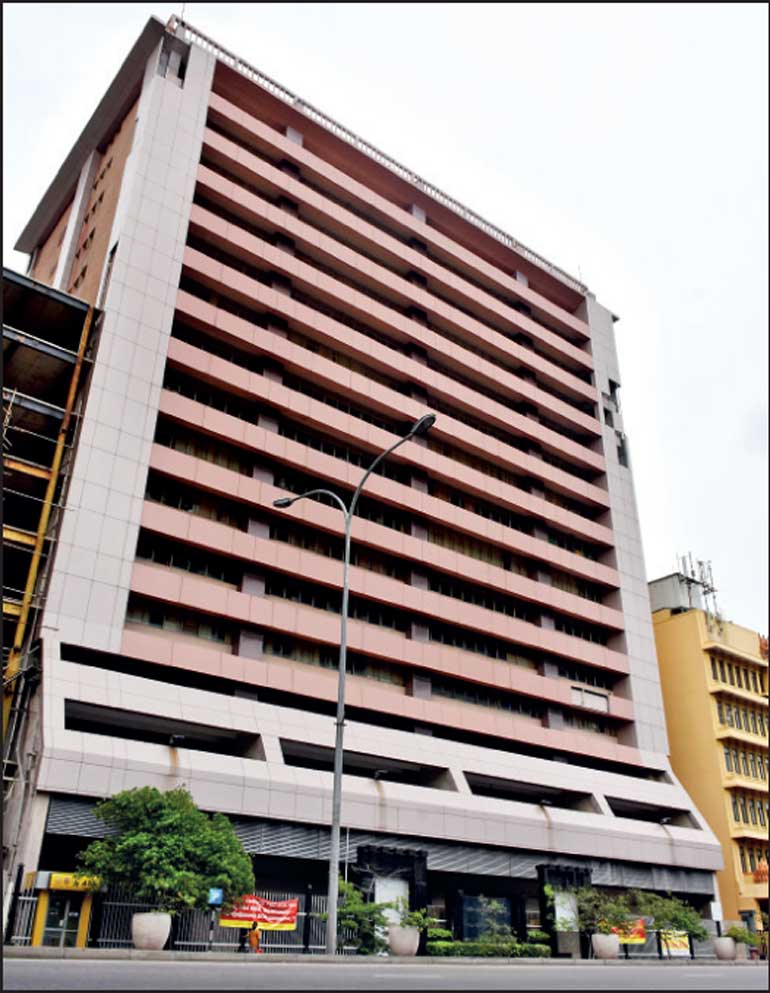Saturday Feb 21, 2026
Saturday Feb 21, 2026
Friday, 15 March 2024 00:30 - - {{hitsCtrl.values.hits}}
 Due to the current economic environment, it is understood that tax revenue collection should be enhanced to increase the Tax to GDP ratio. However, the Government should take precaution to ensure this endeavour to enhance tax revenue does not lead to harassment or unfairness to the taxpayer.
Due to the current economic environment, it is understood that tax revenue collection should be enhanced to increase the Tax to GDP ratio. However, the Government should take precaution to ensure this endeavour to enhance tax revenue does not lead to harassment or unfairness to the taxpayer.
There are many knowledgeable tax officers who understand both sides of the fence and act professionally by respecting the Rule of Law and the Taxpayer Rights. However, due to heightened pressure from the Ministry of Finance and Parliamentary Committees one could lose track of respecting the rights of the other party. What is the recourse available to a taxpayer if tax officers transgress the Rule of Law to exercise their power without respecting the legal rights of the taxpayer?
In the Budget proposals 2023, in Annexure VI to the Budget Speech there was a reference to “A tax Ombudsman will be appointed to address the concerns of the tax payers”. This proposal if implemented is an apt solution to bridge the gap between the well-intended law abiding tax payer and the revenue authority. However, this proposal has not been implemented at the time of writing this article.
A tax ombudsman is an independent and impartial officer who deals with taxpayer’s complaints against the tax administration process.
A dilemma that may arise is whether a robust Tax Appellate Process is sufficient?
The tax appellate process is a process under which any issues with regard to the interpretation of the Law and computation of the tax liability are addressed.
The tax ombudsman will provide a forum to address grievances of the taxpayers with regard to the tax administration process.
The need for a tax ombudsman
Sri Lanka does have a complex tax arena and navigating through the complexities can be daunting, and sometimes, disputes arise between the taxpayers and tax authorities.
To bridge this gap between the taxpayers and the tax authorities and to ensure fair treatment, many countries have established the office of tax ombudsman, which are independent bodies that investigate taxpayer complaints and advocate for their rights.
The tax ombudsman plays a vital role in ensuring a fair and efficient tax system. Accessibility, an opportunity to be heard, and commitment to impartiality offer valuable recourse to taxpayers facing challenges with tax authorities.
 Benefits of establishing a tax ombudsman
Benefits of establishing a tax ombudsman
The establishment of a well-functioning tax ombudsman can uplift the tax regime in Sri Lanka and encourage voluntary tax compliance. While the cost involved to establish the office of the tax ombudsman with the necessary resources (retired judges or eminent public servants), the benefits will be far higher. Hence, an appointment of a tax ombudsman should be supported by the tax administrators and taxpayers both alike.
History of the tax ombudsman in Sri Lanka
The tax ombudsman is not an entirely novel concept in Sri Lanka. The Budget Speech 2004 referred to the establishment of a tax ombudsman and it was implemented in September 2005. The Office of the Tax Ombudsman was established in September 2005 with the appointment of a retired High Court Judge who was the first and the only holder of the Office of Tax Ombudsman in Sri Lanka. In 2008, the office was abruptly abolished due to budgetary constraints and citing concerns about its effectiveness.
Since then, although occasional discussions had occurred on reviving the role of a tax ombudsman, no concrete action has been taken.
Although Justice Paranagama was in office only from 2005 to 2008 as the Tax Ombudsman, the existence of a forum for taxpayers to take their grievances brought a lot of hope and positive thoughts with regard to the Office of the Tax Ombudsman.
Lessons from foreign jurisdiction
In the International arena South Africa has an effective Office of the Tax Ombudsman established under the Tax Administration Act of 2011 and was formed in 2013.
The Tax Ombudsman is appointed by the Minister of Finance; accountable to the Minister of Finance.
The key responsibilities assigned to the tax ombudsman is to maintain a balance between revenue authorities’ powers and duties and taxpayer rights and obligations on the other.
Time is apt for tax ombudsman appointment
Policy makers should realise that establishment of a tax ombudsman in Sri Lanka will have a positive contribution to the tax regime in Sri Lanka. It is very important that the establishment of a tax ombudsman should be with a proper legal framework (by a Statute of Parliament) setting out his powers and duties. There should be accountability where reports should be submitted by the Office of Tax Ombudsman to the Parliament with regard to its progress. The tax payer should not be charged to access the tax ombudsman and there should be a clear and simple process in place.
A well-functioning tax ombudsman system will enhance the faith of the tax payers of Sri Lanka and enhance the interest for voluntary compliance which would allow them to navigate the Sri Lanka tax system.
Achieving a balance between revenue authorities’ powers and duties and taxpayer rights and obligations will enhance the degree of equity and fairness in tax administration and improve taxpayers’ perception of the country’s tax system.
(The writer is Principal – Tax and Regulatory, KPMG.)